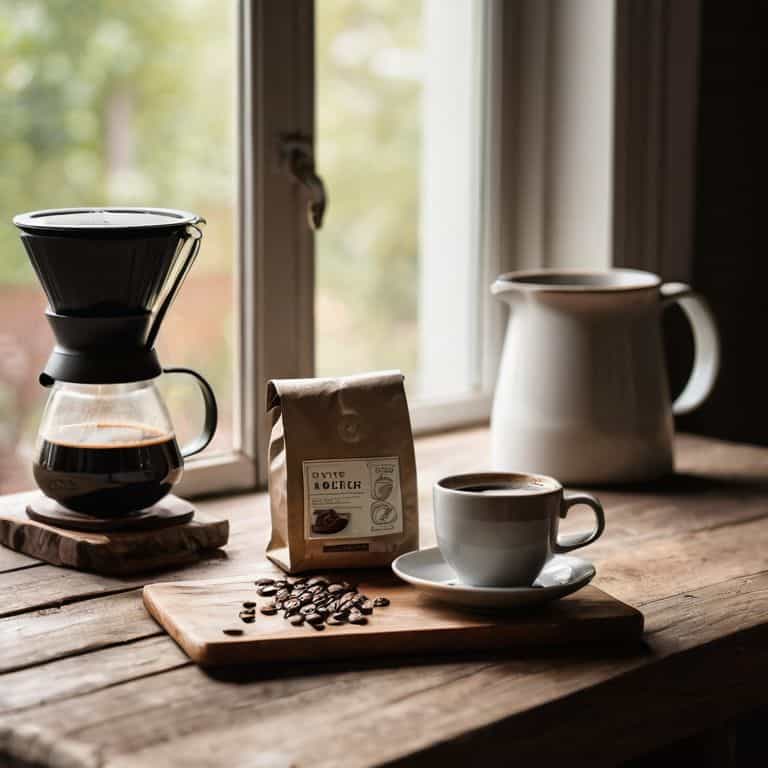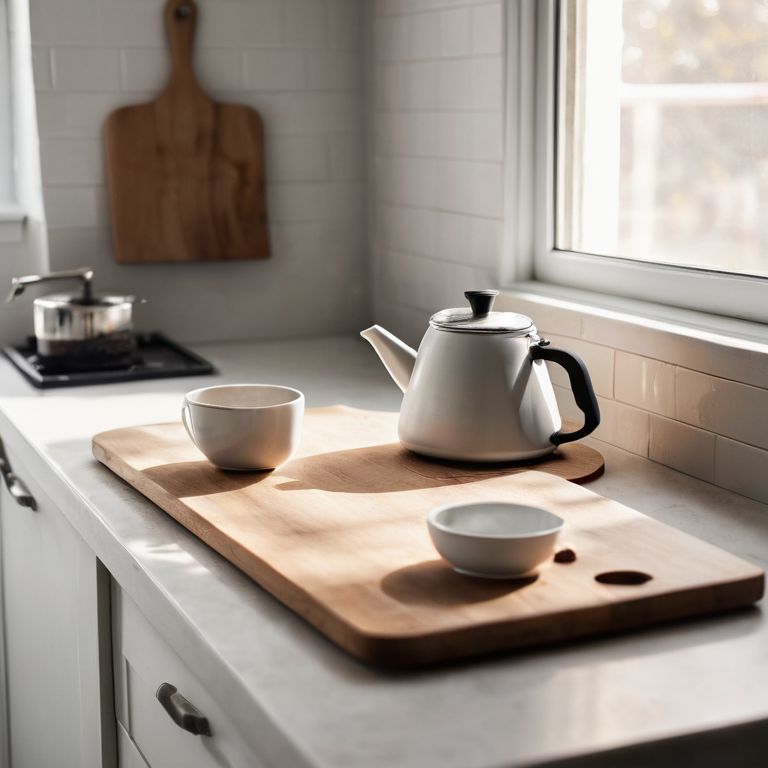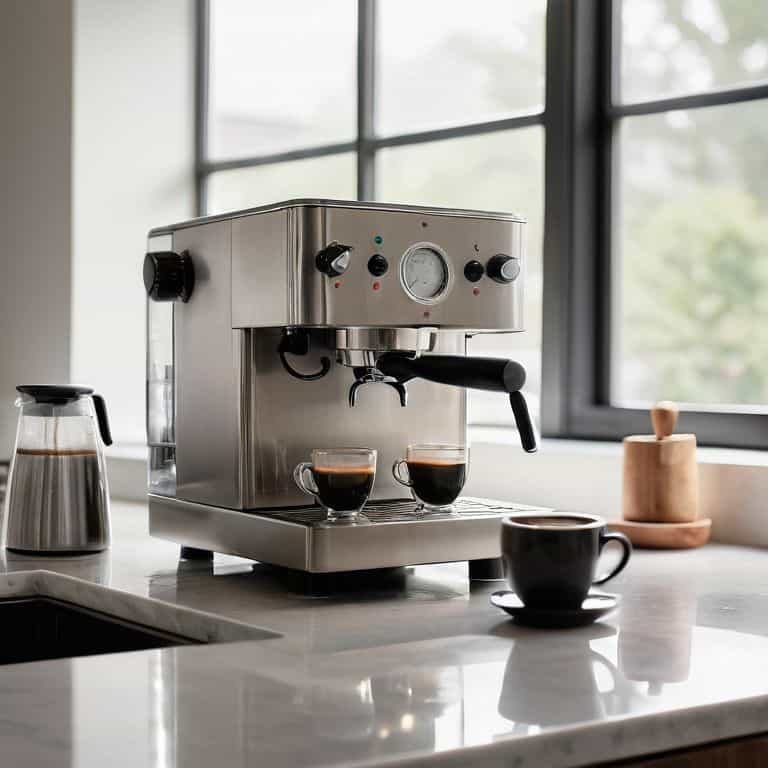As a specialty coffee buyer and roaster, I’ve often found myself pondering the question: is a hand grinder better for pour-over? It’s a dilemma that has sparked heated debates among coffee enthusiasts, with some swearing by the convenience of electric grinders, while others insist that hand grinders are the only way to go. I’ve been in the trenches, traveling to coffee farms in Central and South America, and building relationships with producers, so I’ve had my fair share of experiences with both types of grinders. But what really gets my gears grinding is the lack of nuanced discussion around this topic.
In this article, I promise to cut through the noise and provide you with honest, experience-based advice on whether a hand grinder is truly better for pour-over. I’ll draw from my decade-long journey in the coffee industry, sharing personal anecdotes and insights that go beyond mere speculation. My goal is to give you a clear understanding of the pros and cons of each type of grinder, so you can make an informed decision that suits your coffee needs. So, if you’re tired of generic reviews and want to dive into the world of specialty coffee with a trusted guide, then you’re in the right place. Let’s get started on this journey to discover the perfect grind for your pour-over.
Table of Contents
Hand Grinder
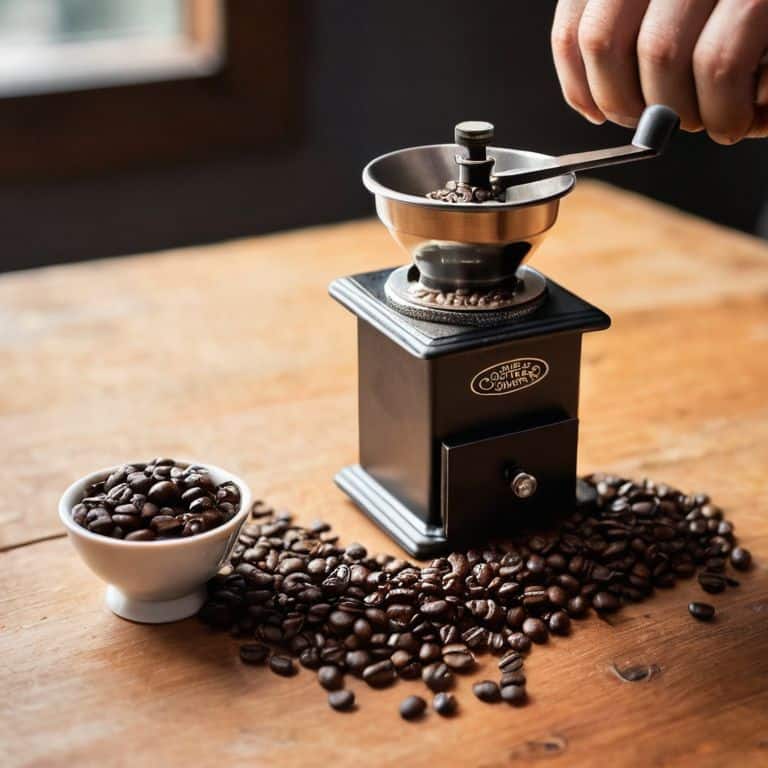
A hand grinder is a manual brewing device used for pour-over coffee preparation, which relies on a user-generated grinding motion to crush coffee beans into a precise grind size. The main selling point of a hand grinder is its ability to produce a highly customizable grind, allowing users to tailor their coffee’s flavor profile to their liking. This level of control is particularly appealing to coffee connoisseurs who value the nuances of specialty coffee.
For me, the hand grinder has been a game-changer in my daily coffee routine, as it allows me to experience the sensory ritual of manual grinding. There’s something therapeutic about the gentle grinding motion, which helps me connect with the coffee on a deeper level. As a specialty coffee buyer and roaster, I appreciate the precise control a hand grinder offers, enabling me to bring out the unique characteristics of each coffee bean. Whether I’m cupping a new coffee or simply enjoying a quiet morning, my hand grinder is always by my side.
Electric Grinder
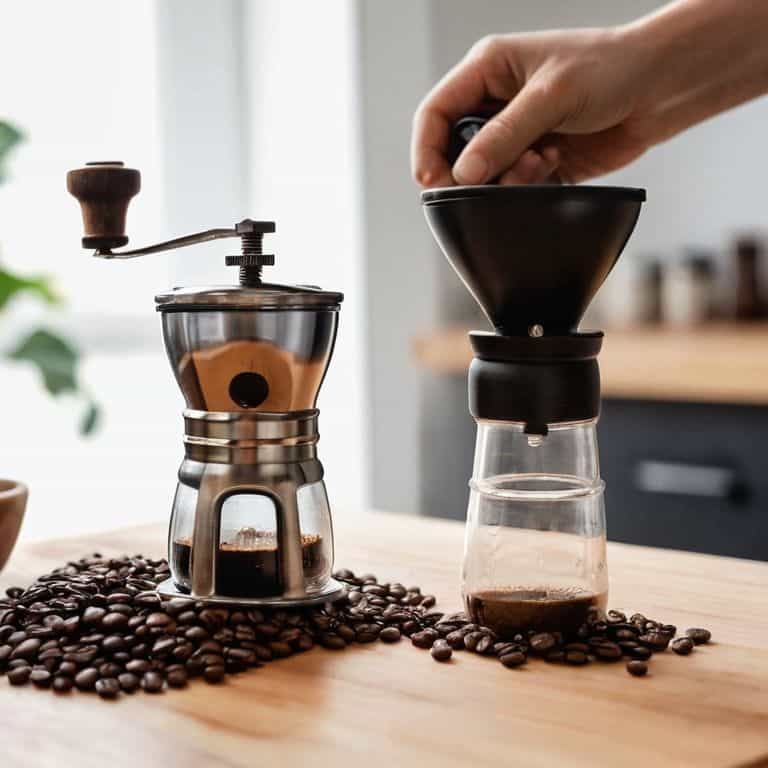
An electric grinder is an automated brewing device used for pour-over coffee preparation, which utilizes a motorized grinding mechanism to quickly and efficiently grind coffee beans. The main advantage of an electric grinder is its speed and convenience, allowing users to grind their coffee beans with minimal effort and time. This makes it an attractive option for those with busy lifestyles or who value ease of use in their coffee preparation.
However, as someone who’s passionate about specialty coffee, I’ve found that electric grinders can sometimes lack the nuance and character that manual grinding provides. While electric grinders are undoubtedly convenient, they can also be noisy and messy, which can detract from the overall coffee experience. Nevertheless, I acknowledge the appeal of electric grinders for those who prioritize speed and efficiency in their daily routines, and I’m always curious to explore how different grinding methods can impact the final flavor profile of a coffee.
Head-to-Head Comparison: Hand Grinder vs Electric Grinder for Pour-over
| Feature | Hand Grinder | Electric Grinder |
|---|---|---|
| Price | $20-$50 | $50-$200 |
| Key Feature | Manual grinding | Automatic grinding |
| Best For | Travel, small batches | Large batches, convenience |
| Grind Consistency | High, with practice | High, consistent |
| Noise Level | Quiet | Loud |
| Portability | High | Low |
| Ease of Use | Easy, once learned | Very easy |
Hand Grinder vs Electric
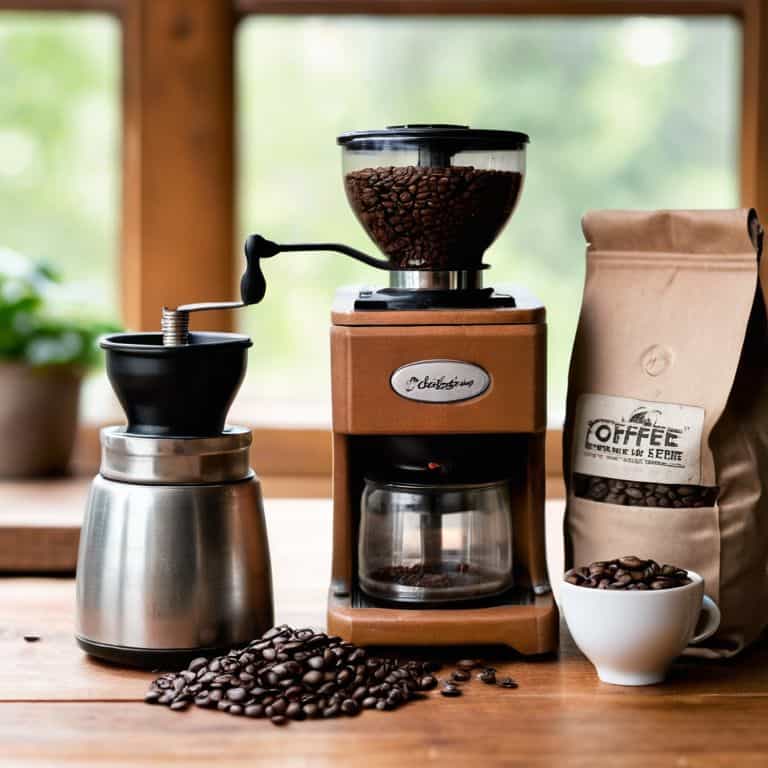
When it comes to the hand grinder vs electric debate, the grinding mechanism is a crucial factor in determining the overall quality of the pour-over coffee. This is because the grinding process can either preserve or destroy the delicate flavors and aromas of the coffee beans. As a seasoned coffee expert, I can attest that the choice between a hand grinder and an electric grinder can make all the difference in the world.
In a head-to-head analysis, hand grinders offer a more precise control over the grinding process, allowing for a more consistent grind size and distribution. This, in turn, can result in a more nuanced flavor profile and a smoother overall taste experience. On the other hand, electric grinders are often faster and more convenient, but they can also generate heat, which can damage the coffee beans and alter their flavor profile.
In conclusion, when it comes to the hand grinder vs electric criterion, I firmly believe that hand grinders are the clear winner. Their ability to provide consistent results and preserve the delicate flavors of the coffee beans makes them the better choice for pour-over coffee enthusiasts.
My Top 3 Takeaways: Hand Grinder vs Electric for Pour-Over
I’ve found that hand grinders bring out a more nuanced flavor profile in pour-over coffee, likely due to the consistent grind size and lack of heat generation
Despite the extra effort required, I believe the manual process of hand grinding connects me more intimately with the coffee-making process, making each cup feel more crafted and personal
Ultimately, whether a hand grinder is ‘better’ for pour-over comes down to your priorities: if you value flavor nuance and a tactile experience, hand grinding is the way to go; but if speed and convenience are your top concerns, an electric grinder might still be your best bet
The Hand Grinder Verdict
For me, a hand grinder is not just a tool, it’s a gateway to a more intimate, sensory experience with coffee – it’s about feeling the beans between your fingers, hearing the gentle grind, and smelling the aroma as it unfolds, making every pour-over a ritual that awakens the senses.
Amelia Rose
The Final Verdict: Which Should You Choose?
As I reflect on the comparison between hand grinders and electric grinders for pour-over coffee, it’s clear that each has its own unique strengths and weaknesses. The manual labor of a hand grinder can be a therapeutic experience, allowing for a more intimate connection with the coffee, while electric grinders offer convenience and speed. However, when considering the nuances of flavor and aroma, I’ve found that the slower, more deliberate process of hand grinding can bring out the best qualities of the coffee.
Ultimately, the decision between a hand grinder and an electric grinder comes down to the type of user you are. If you’re a busy professional looking for a quick and easy morning routine, an electric grinder might be the better choice. On the other hand, if you’re a coffee enthusiast who values the artisanal process and is willing to invest a little more time and effort into your brew, a hand grinder is the way to go. For me, the rewarding experience of hand grinding makes it the clear winner, but I acknowledge that it’s not for everyone.
Frequently Asked Questions
What are the key differences in flavor profile between pour-over coffee made with a hand grinder versus an electric grinder?
For me, the flavor difference is night and day. Hand-grinded pour-overs yield a more nuanced, delicate profile with pronounced notes, while electric-grinded brews can taste dull and over-extracted. The slower, more gentle grinding process preserves the coffee’s inherent characteristics, allowing its unique story to shine through.
How does the grind consistency of a hand grinder compare to an electric grinder, and what impact does this have on the overall pour-over experience?
I’ve found that hand grinders produce a remarkably consistent grind, rivaling electric grinders. The manual process allows for a more nuanced control, which translates to a smoother pour-over experience. While it may take a bit more elbow grease, the payoff is worth it – a more even extraction and a deeper, richer flavor that showcases the coffee’s true character.
Are there any specific pour-over brewing methods or techniques that are better suited to hand grinders versus electric grinders?
For pour-over, I swear by the Chemex and Hario V60 when using my hand grinder – the slower grind brings out nuances that get lost with electric grinders. Try a pulse-pour technique to really accentuate the flavors.

